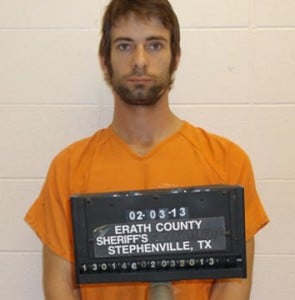
Chambers’ Unique Strengths
“The Right Mics” hosts, Mike Miller and Michael Hausam, asked Dan Chambers to speak on their radio show because he has lots of experience both prosecuting and defending capital murder cases. He has a unique set of skills that make him perfectly suited to comment on this momentous guilty verdict.
The first question was, “Why didn’t the state of Texas seek the death penalty?”
Chambers explained that though everyone thinks of Texas as the death penalty capital of the world, and that’s the one place you don’t want be defending a capital murder case, there are still valid reasons to avoid seeking a death penalty charge. He explained that there’s no way to really know what the prosecutors were thinking, so we can only speculate, but it’s basically the same process in Texas as in California, so he felt comfortable speculating on their decisions.
Death Penalty Choice Made By Committee
Prosecutors must always decide very early on in the case whether they’re going to seek the death penalty and, he said that it’s done by committee: “The lead prosecutor prepares a very comprehensive memo to his bosses in the DA office… It goes into the background of the defendant, his past criminal record, they even take into consideration the wishes of the victim’s family (and I’m thinking here maybe that had a role to play), and then make a recommendation on whether to pursue the death penalty… I’m guessing that after that memo was prepared and after they went into his background, they said, you know what, we’re going to get a guilty verdict in the crime phase, so let’s just forgo it, let’s just get an LWOP so the guy never gets out of prison.” LWOP means Life Without Parole, so Mr. Routh will not be able to apply for parole, and he’ll die in prison.
Why LWOP?
Pursuing a LWOP charge was a much safer bet, Chambers said, because if they did pursue the death penalty, it would only take one or two jurors who were opposed to the death penalty to hang up the entire jury. When the jury gets hung up and can’t agree on a verdict, the case needs to completely retried. So prosecutors likely thought, Chambers said, “Let’s not risk getting an adverse ruling or getting a hung jury and having to retry
this thing and have to go through this nightmare again.” A bit later, Chambers also commented that the LWOP sentence would be decided by the judge, not the jury, bypassing that step in the case and increasing the likelihood of acquiring the intended sentence.
Juror Selection Process in Death Penalty Cases
He further elaborated on this point by talking about the juror selection process and “death qualification.” This means that before the jurors for a death penalty case are selected, they are asked a series of specific questions in an effort to make sure they’re not philosophically opposed to the death penalty. But it’s impossible to know how people feel in their heart of hearts. It’s possible that after reassuring prosecutors that they’re comfortable with the death penalty before the case begins, they see the defendant and hear testimony that persuades them that a death penalty verdict would be unwise. Even just one or two people who feel this way can sabotage the jury room, so often prosecutors go with the safe bet and feel much more confident that they will be able to achieve a guilty verdict without the death penalty on the table.
Question two: “Why does the determination need to be made up front about whether to pursue the death penalty?”
Answer: “The reason it needs to be made up front is because if they seek the death penalty, it triggers a lot of other due process and procedural safeguards for the defendant that you don’t have to go through if you’re not seeking the death penalty. So it’s a more streamlined case if you’re not seeking the death penalty and like I said, when you’re picking a juror, you don’t have to go through the death qualification process.”
 Predictions about Routh’s Fate
Predictions about Routh’s Fate
Lastly, Chambers made some pointed predictions about what might happen to Routh. It’s very likely that he’ll appeal the ruling, but unless something bizarre happens, he’ll spend his entire life behind bars, eventually dying in prison. He went on to say, “If Routh is sent to a facility somewhere in Texas and they find out who he is and what he’s there for, he’s probably not going to be real popular among the inmates either, so his future is dicey anyway, even without a death verdict.”
Comfort for the Families
Those are ominous words, but perhaps they provide some measure of comfort to the Kyle and Littlefield families, who will never see or hug their loved ones again. Coming from Dan Chambers, you know they’re solid predictions that are made based on years of experience as a prosecutor and criminal defense attorney in Southern California.
Do you need an expert defense?
If you’re being charged with a crime in California, don’t hesitate to get in touch with Dan Chambers. Make an appointment for a free consultation with a lawyer who definitely knows what he’s talking about and will fight for you tooth and nail. Call 714-760-4088 or click CONTACT above to get in touch.

 Predictions about Routh’s Fate
Predictions about Routh’s Fate


